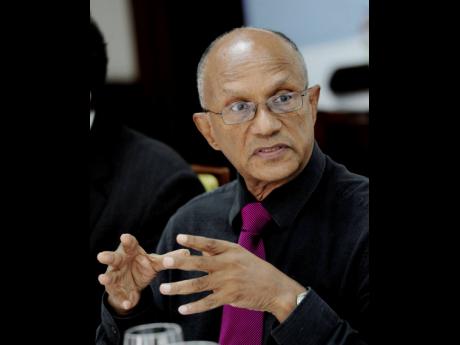Give whistle-blowers witness protection, Munroe urges
Executive director of civil-society lobby National Integrity Action, Professor Trevor Munroe, has called for the strengthening of the Protected Disclosures Act of 2011 to explicitly provide for whistle-blowers to have access to the Witness Protection Programme.
“This would allow public-sector workers in the over 200 ministries, departments, agencies, and public-sector entities who see wrongs to report corruption in their particular entity with the confidence that they would have that facility available to them,” Munroe said during his keynote address last Thursday at the Alumni Association of the William J. Perry Center for Hemispheric Defense Studies ‘Alumni Evening’ at the Jamaica Officers’ Club at Up Park Camp.
There have been no prosecutions under the whistle-blower law since its enactment more than seven years ago.
Munroe has cast the failure to catch and hold the ‘big fish’ as a major contributor to the decline in confidence in the rule of law and in officialdom and said that pushing through legislation must become the most urgent priority in dealing with corruption.
In his address, the anti-corruption campaigner put forward several legislative recommendations, some being acted on, others long proposed, but all now requiring urgent action.
Among them is the Public Procurement Act of 2015, which makes it a criminal offence to violate procurement rules in the award of contracts, noted Munroe, citing the findings of the auditor general’s report on allegations of nepotism and cronyism at the state oil refinery Petrojam.
The act also allows the financial secretary to impose a surcharge on the offending officials equivalent to the losses to the public purse.
“This criminalisation of breaches of procurement was actually proposed in 2009 in our National Development Plan Vision 2030,” said Munroe, “yet the law is not yet in effect. The regulations must immediately be drafted so that this act can come into force. It cannot be acceptable that offending officials, whether general managers, CEOs, or politicians, simply resign with no further sanctions,” Munroe contended.
He further argued that the law to impeach public officials who breach public trust, again proposed in Vision 2030, nine years ago and drafted six years ago, must now be fast-tracked.
“This would allow, after due process, any public official, including ministers, to be removed from office for breach of public trust,” he said.

